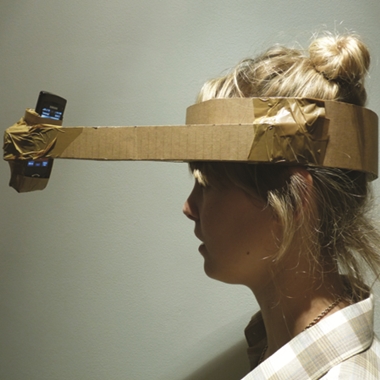

Play is a fascinating, cross-disciplinary topic of research that has been studied in various academic fields including psychology, sociology and ethology. Recently it has been gaining interest through the emerging field of game studies and through advancements in machine learning. Different perspectives towards play have resulted in conflicting, paradoxical observations, contributing to the "ambiguity of play" (Brian Sutton-Smith).
In my project I aim to contribute to the studies of games and play in three interconnected ways: My main goal is to present a systems-theoretic approach to play. I argue that a theory capable of describing a multi-faceted phenomenon like play must be sufficiently abstract, complex, and universal. These qualities can be found in general systems theories. Therefore I apply a distinction-based approach to play, building on constructivist foundations - Spencer-Brown's calculus of distinctions, second order cybernetics and in particular Niklas Luhmann's theory of social systems.
The second contribution is the construction of a bridge between theory and practice. To this end, I am following the speculative question "Can machines play?", echoing Alan Turing's question "Can machines think?". Machines, including mechanical entities, robots and computer programs, presumably do not have an intrinsic concept of play. Yet we accept artificial and virtual entities as play objects, partners and opponents. This raises the question in what sense a machine can or cannot play. Furthermore, I ask how does one design playful interactions, not only with a machine but for machines and humans alike – a speculative approach that I call anthroponeutral design. I critically examine previous attempts at modelling play and propose a number of directions for designing playful systems, relocating established system boundaries between machines, games and humans.
I am developing this project in iterations, oscillating between theory and practice by playing with various distinctions, designing, developing, re-purposing and exposing a number of playful systems: KlingKlangKlong (a playful system for humans and non-humans alike), neurotic (an attempt to model play in biological systems), Spiel 1 (a playful take on "Serious Games”), Hostile Environment Facility Training (an inquiry into identity and distinction), Speed Gardening Guerrilla, CO2rnwall CO2 Challenge and Pedestrian Fitness Initiative for Plymouth (three system/environment related projects) and Imperfect VR (a manifesto and workshops for inclusive and experimental Virtual Reality). My third contribution to knowledge is the process of creating, constructing, designing, implementing and critically evaluating these projects, a methodology where practice and theory inform each other.
Kin Design, UK (Design and develop a mixed reality app)
Link to Research Ethics documentation.

Jane Grant, Mike Phillips (i-DAT), John Matthias, James Brocklehurst, Matt Wade.